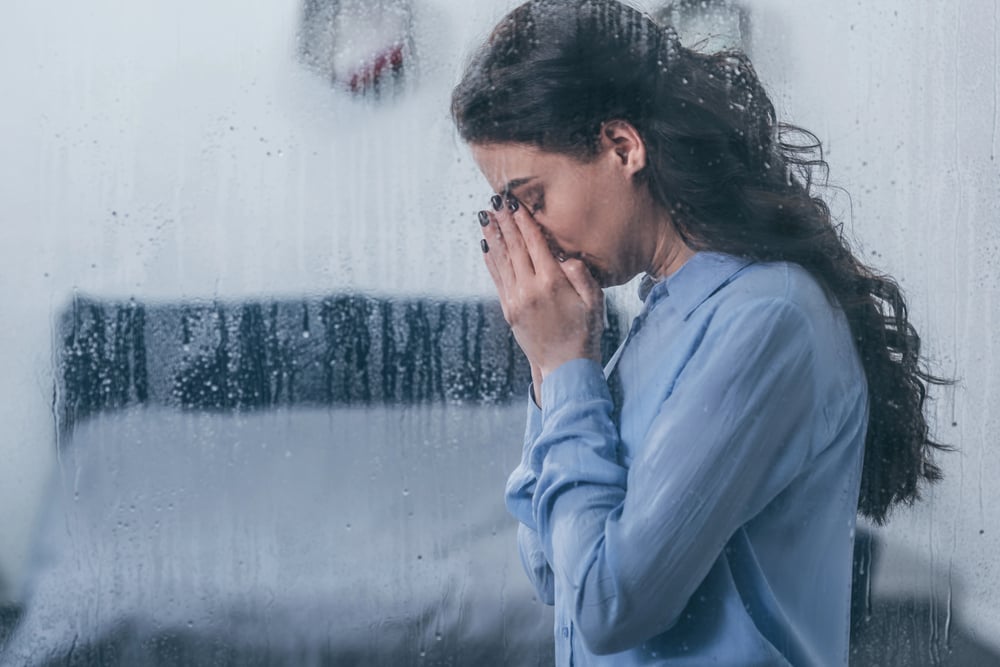What are Trauma Triggers?
Trauma triggers are stimuli that remind you of past traumatic experiences. These stimuli can be anything, including smells, sounds, sights, or even certain thoughts. Trauma triggers can be internal or external, and they can be difficult to identify. Identifying trauma triggers is an important step in the healing process, as it can help you avoid situations that may cause distress.
How to Identify Trauma Triggers

How do you know when trauma is triggered? Identifying trauma triggers can be challenging, as they can be subtle and may not always be apparent. However, there are some common internal and external triggers that you can look out for. Internal triggers include feelings of stress, anger, or sadness, while external triggers can include people, places, or things that remind you of the traumatic event.
To identify your trauma triggers, it can be helpful to keep a journal and write down any situations or experiences that cause you distress. This can help you identify patterns and common themes, which can then be used to avoid triggering situations.
Trauma triggers can be unique to each individual, but there are some common triggers that people with a history of trauma may experience. These can include:
- Loud or sudden noises
- Certain smells or tastes
- Certain places or locations
- Specific people or types of people
- Certain words or phrases
- Physical touch or contact
It’s important to remember that everyone’s trauma triggers are different, and what triggers one person may not trigger another.
How Does the Brain Respond to Trauma Triggers?
When you experience trauma, it can cause changes in the brain that make certain stimuli trigger memories and reactions to the traumatic event. These triggers can be anything from a certain smell or sound to a specific location or person. The brain’s response to these triggers can be intense and overwhelming, leading to symptoms of post-traumatic stress disorder (PTSD).
Research has shown that trauma can affect the amygdala, the hippocampus, and the prefrontal cortex, which are all areas of the brain involved in memory and emotion regulation. Trauma can also alter the levels of hormones such as cortisol and adrenaline, which can affect the body’s stress response.
When a trauma trigger is encountered, the brain perceives the situation as a threat and activates the fight or flight response. This response can cause physical symptoms such as increased heart rate, sweating, and rapid breathing. The intensity of the response can vary depending on the individual and the severity of the trauma.
It is important to note that trauma triggers can be different for each person and can change over time. Identifying triggers and learning coping mechanisms can help manage symptoms of PTSD and improve overall quality of life. Therapy, medication, and other forms of treatment can also be effective in addressing trauma triggers and managing PTSD symptoms.
If you are struggling with trauma triggers, it is important to seek professional help. Sabino Recovery offers comprehensive PTSD treatment programs that can help you overcome the effects of trauma and improve your mental health and well-being.
What are the Different Types of Trauma Triggers?
Trauma triggers can be anything that reminds you of a past trauma. These triggers can be sensory experiences, such as a particular sound, smell, sight, taste, or texture. They can also be situational, such as being in a crowded place or an argument. Trauma triggers are unique to each individual, and what may trigger one person may not trigger another.
Sights can be a powerful trigger for some people. For example, seeing a car accident might trigger memories of your own car accident. Similarly, the sound of sirens can be a trigger for someone who has experienced a medical emergency.
Smells can also be a powerful trigger. For example, the smell of smoke might trigger memories of a fire. Piece of clothing can also be a trigger, as it may remind you of a traumatic event.
Unexpected situations can also be a trigger. For example, fireworks might trigger memories of combat for a veteran.
Link Between Trauma Triggers and PTSD
Do you struggle with PTSD symptoms triggered by traumatic events? Trauma triggers are anything that reminds you of a traumatic experience and can cause intrusive thoughts, flashbacks, and nightmares.
PTSD is a mental health condition that can develop after experiencing or witnessing a traumatic event. Trauma triggers can cause symptoms of PTSD to resurface, even years after the initial event.
It’s important to understand your personal triggers and develop coping mechanisms to manage them. Common triggers include sights, sounds, smells, and even certain people or places. Combat veterans may experience triggers related to their time in service, such as loud noises or crowded areas.
Trauma reminders can cause a range of reactions, from general distress to an increase in PTSD symptoms. To cope with triggers, it can be helpful to practice grounding techniques, mindfulness, and deep breathing exercises.
If you’re struggling with PTSD and trauma triggers, seeking professional help can be beneficial. Therapy, medication, and other treatments can help you manage your symptoms and improve your quality of life.
Remember, everyone’s experience with PTSD is unique, and it’s important to find the right treatment plan for you. With the right support and coping mechanisms, you can learn to manage your triggers and live a fulfilling life.
Emotional Responses to Trauma Triggers
When you experience a traumatic event, it can leave a lasting impact on your emotional state. Trauma triggers can evoke a range of emotional responses, including fear, anger, sadness, guilt, and panic. These emotional reactions may be difficult to manage and can lead to dissociation or other negative outcomes.
One common emotional response to trauma triggers is fear. You may feel a sense of dread or anxiety when confronted with a trigger, even if it is not directly related to the traumatic event. This fear can be overwhelming and may lead to avoidance behaviors.
Another emotional response to trauma triggers is anger or rage. You may feel angry at the situation or at others who may have contributed to the trauma. It is important to recognize and manage these feelings in a healthy way to avoid further harm to yourself or others.
Sadness and guilt are also common emotional reactions to trauma triggers. You may feel a sense of loss or regret, or blame yourself for the traumatic event. These emotions can be difficult to manage and may require professional help to process.
Panic is another emotional response to trauma triggers. You may feel a sense of overwhelming anxiety or panic when confronted with a trigger. This can lead to physical symptoms such as rapid heartbeat, sweating, and shortness of breath.
How do Trauma Triggers Affect You Physically?
When trauma is triggered, it can cause a range of physical responses that can be distressing and uncomfortable. These responses are the result of the body’s natural stress response, which is activated when you experience a traumatic event.
Some of the physical responses to trauma triggers include increased heart rate, muscle tension, sweating, and trembling. You may also experience headaches, dizziness, and gastrointestinal problems. These physical symptoms can be intense and may last for several minutes or even hours.
Trauma triggers can also exacerbate existing physical conditions or illnesses. For example, if you have a history of asthma or other respiratory problems, trauma triggers may cause breathing difficulties. Similarly, if you have chronic pain or other physical ailments, trauma triggers may intensify your symptoms.
It’s important to note that everyone responds to trauma triggers differently, and some people may not experience any physical symptoms at all. However, if you do experience physical symptoms when trauma is triggered, it’s important to take care of yourself and seek support from a mental health professional if necessary.
In addition to physical symptoms, trauma triggers can also cause emotional and psychological symptoms, such as anxiety, depression, and flashbacks. If you are experiencing any of these symptoms, it’s important to seek help from a mental health professional who can help you manage your symptoms and work towards healing from your trauma.
How do Trauma Triggers Affect Your Daily Life?
When you experience a trigger, it can have a significant impact on your daily life. Trauma triggers can cause you to feel a wide range of emotions, including anxiety, panic, sadness, and anger. These emotions can be overwhelming and make it difficult for you to focus on your daily tasks.
Trauma triggers can also cause physical symptoms, such as increased heart rate, sweating, and trembling. These symptoms can be disruptive and make it difficult for you to function normally. You may find that you avoid certain situations or people to prevent triggering your trauma.
Avoiding triggers can lead to isolation and loneliness. It can also make it difficult for you to form close relationships with others. If you have an eating disorder, trauma triggers can cause you to engage in disordered eating behaviors. Trauma triggers can also exacerbate symptoms of mental illness, including depression and anxiety.
In extreme cases, trauma triggers can lead to thoughts of death or suicide. If you are experiencing thoughts of suicide, it is important to seek help immediately.
How can Trauma Triggers be Treated and Managed?
When trauma triggers are activated, it can be a distressing and overwhelming experience. However, there are several effective ways to manage and treat these triggers.
If you are experiencing trauma triggers, it is important to seek the help of a mental health professional or doctor who can provide you with a trauma-informed care plan. This plan will help you identify your triggers and develop coping methods to manage them.
One effective treatment method for trauma triggers is exposure therapy. This involves gradually exposing yourself to the trigger in a safe and controlled environment. Over time, this can help desensitize you to the trigger and reduce its impact on you.
It is also important to set boundaries for yourself and communicate them to others. This can involve avoiding certain situations or people that trigger you and being clear about your needs and limitations.
In addition, developing healthy coping methods can help you manage your triggers. This can include practicing mindfulness, engaging in physical activity, or talking to a trusted friend or therapist.
Finally, it is important to understand your window of tolerance – the range of emotions and experiences you can tolerate without becoming overwhelmed. By understanding your window of tolerance, you can better manage your triggers and prevent yourself from becoming overwhelmed.
Trauma Triggers in Special Populations
 What are some common trauma triggers for special populations such as trauma survivors, those who have experienced childhood trauma, and victims of sexual abuse?
What are some common trauma triggers for special populations such as trauma survivors, those who have experienced childhood trauma, and victims of sexual abuse?
For trauma survivors, triggers can vary greatly depending on the type of trauma experienced and the individual’s personal experiences. Common triggers may include loud noises, certain smells, or even specific words or phrases. For those who have experienced childhood trauma, triggers may include situations that remind them of their abusive or neglectful past, such as being around a certain family member or visiting a particular place. Victims of sexual abuse may be triggered by physical touch, certain types of clothing, or even certain types of music or movies.
It is important to note that triggers can be unpredictable and may not always make sense to those who have not experienced trauma. It is also important to remember that triggers can be managed with the right tools and support, such as therapy, mindfulness practices, and self-care techniques.
If you or someone you know is struggling with trauma triggers, it is important to seek help from a qualified mental health professional. They can provide personalized support and guidance to help manage triggers and move towards healing.


